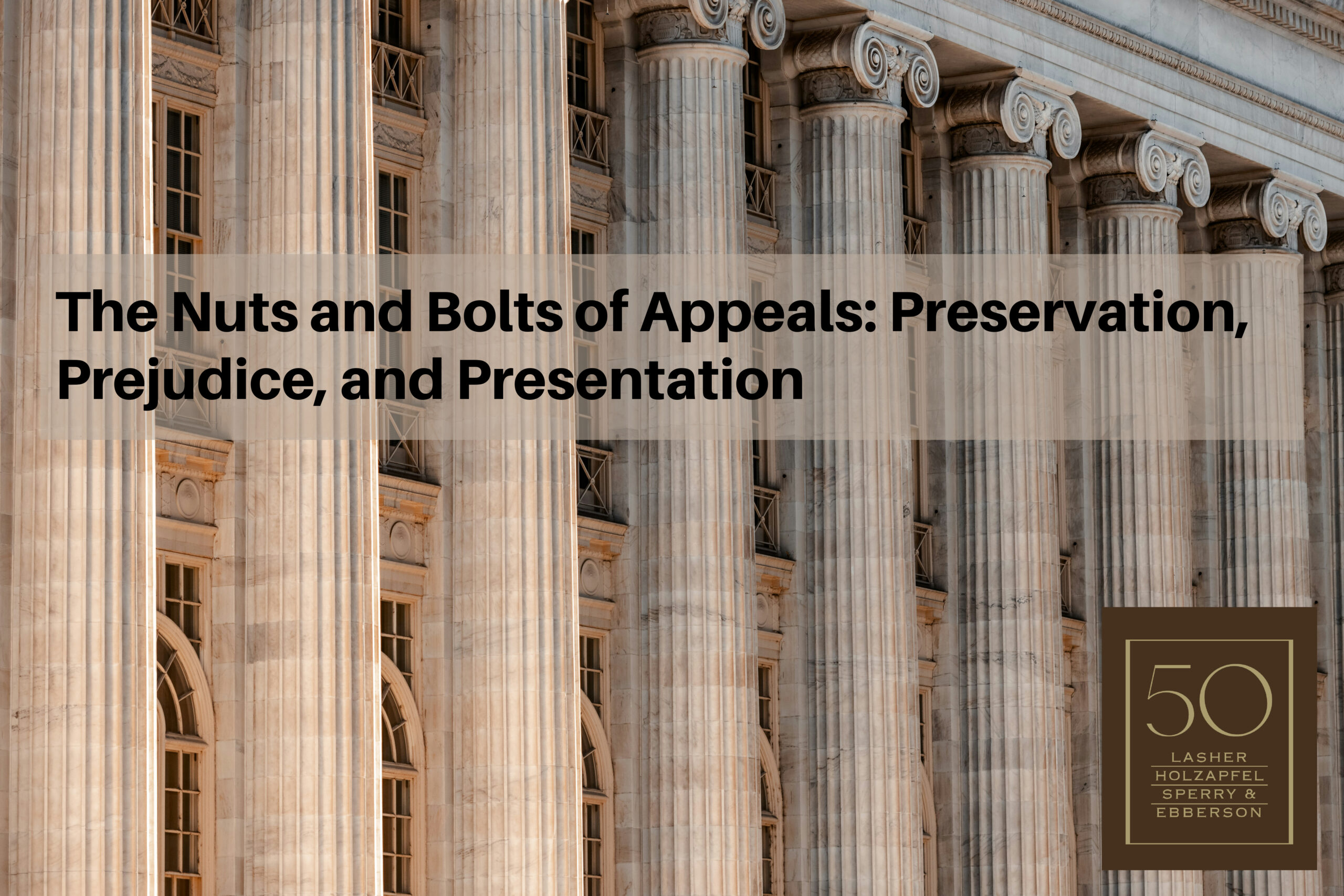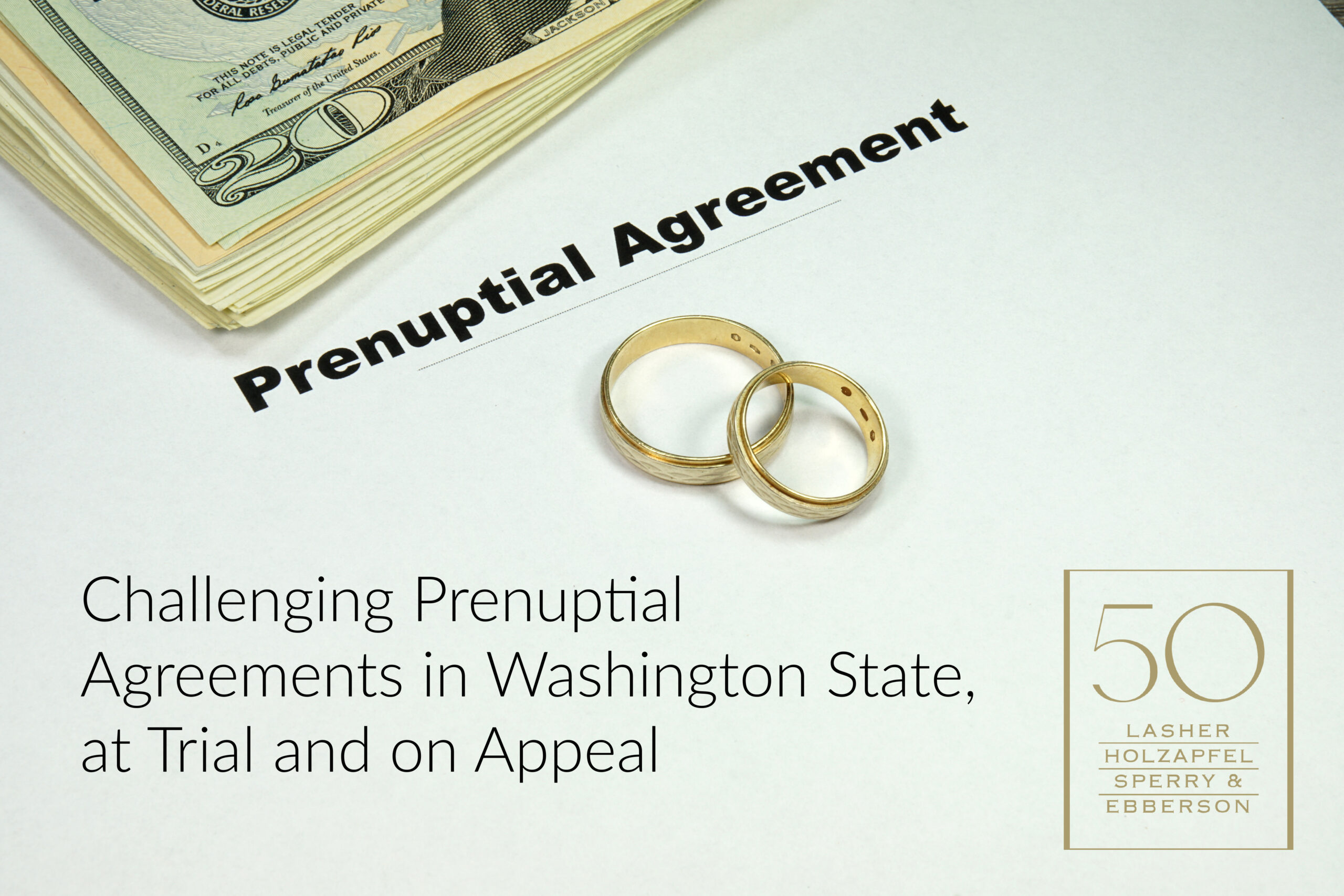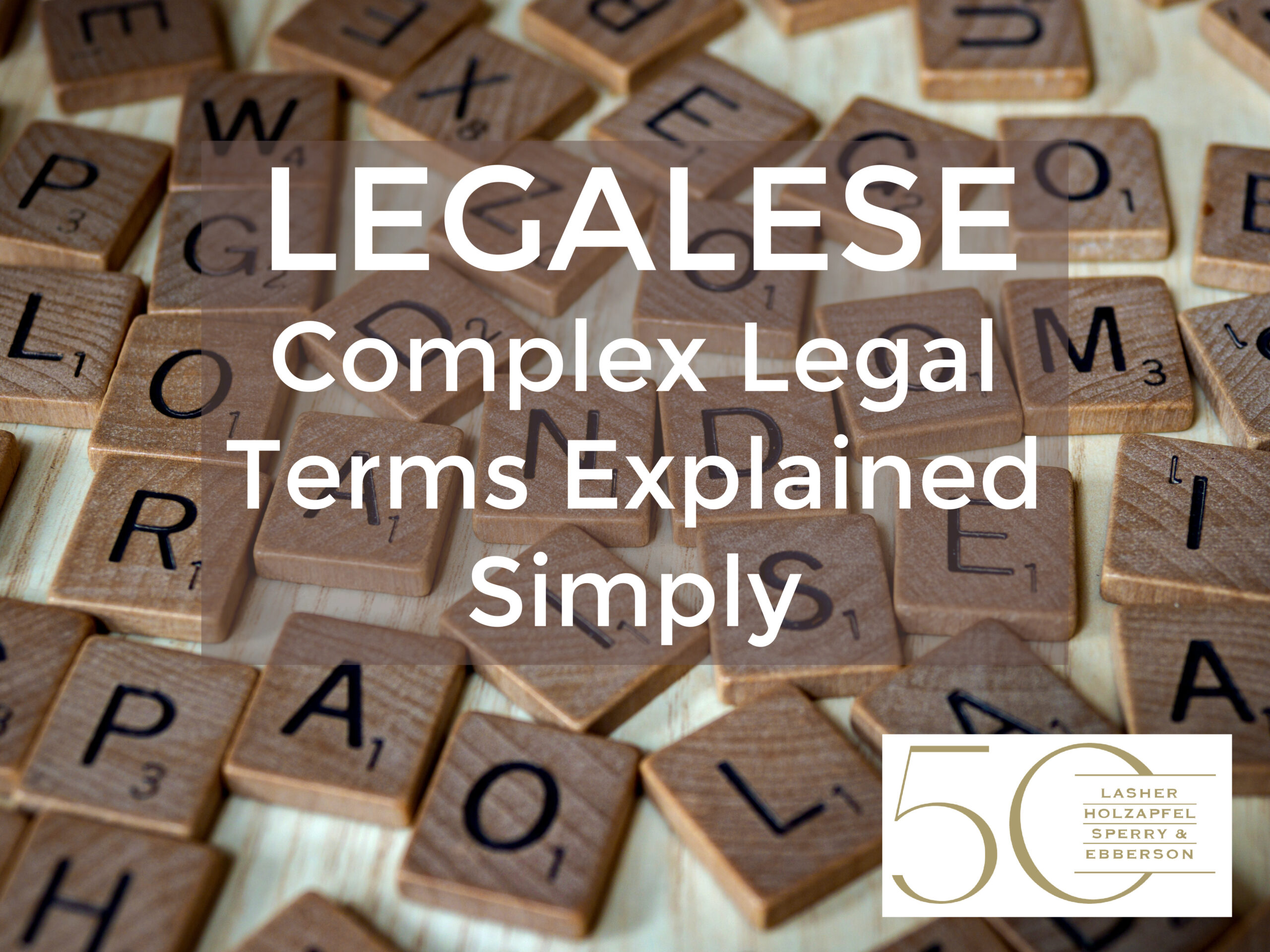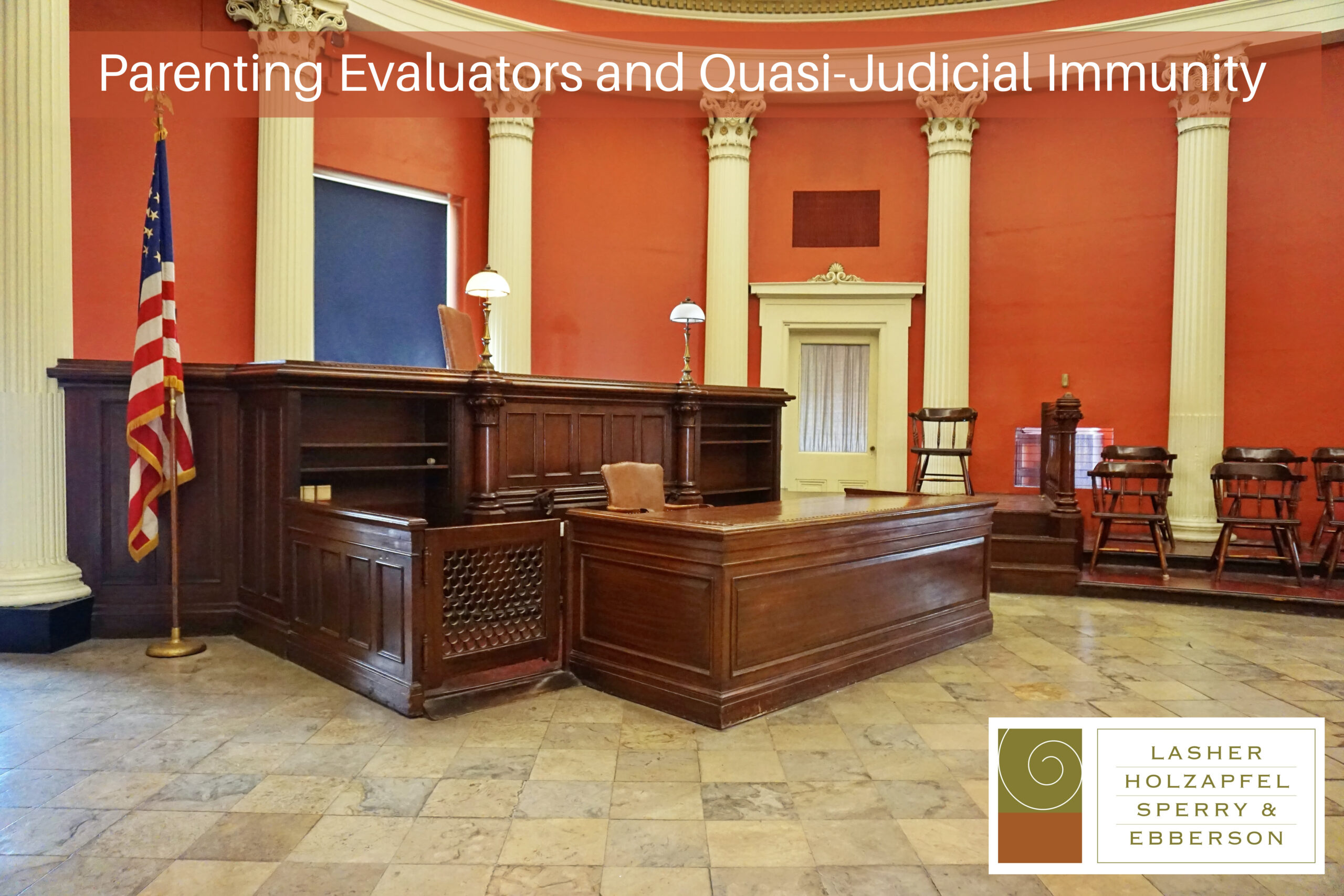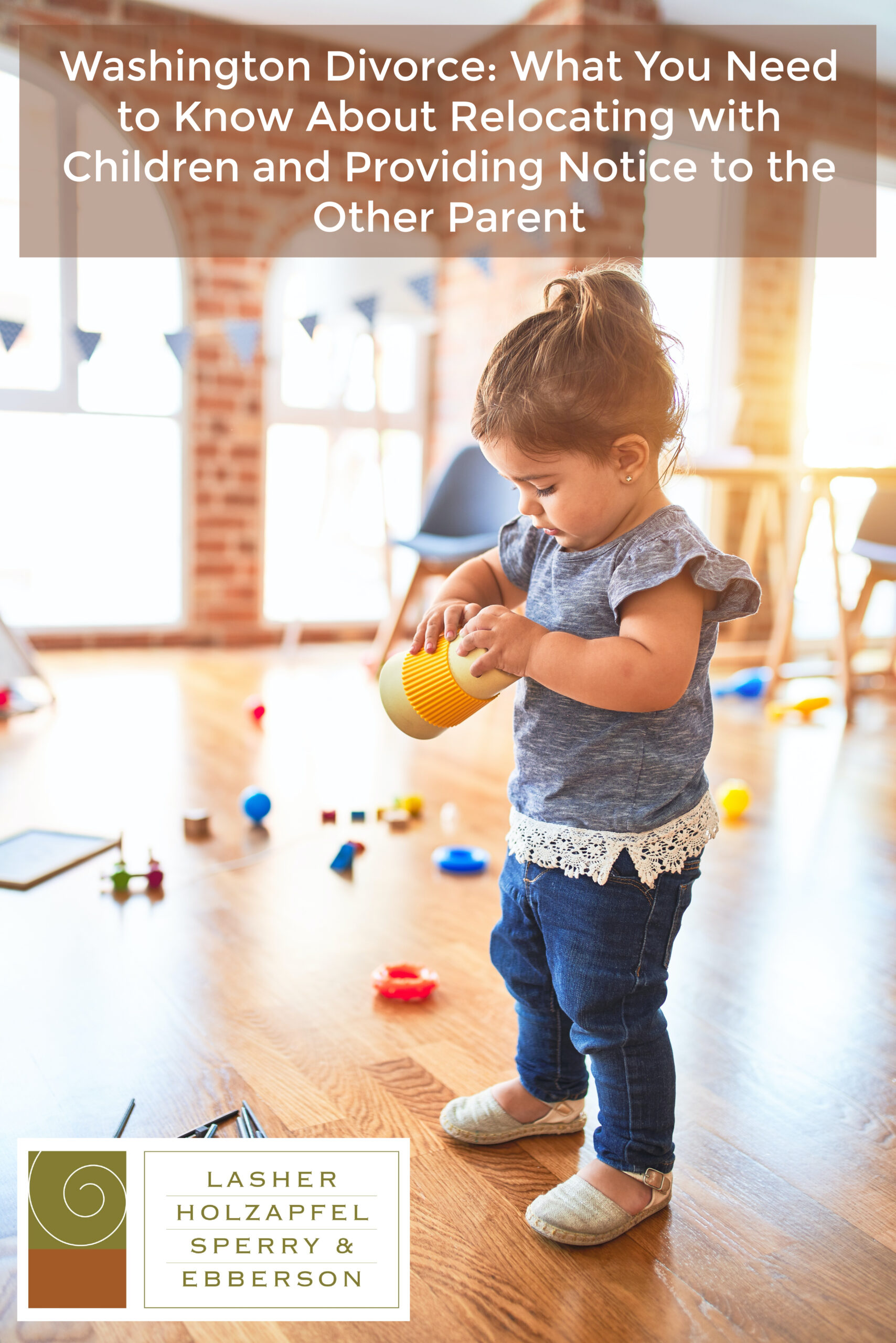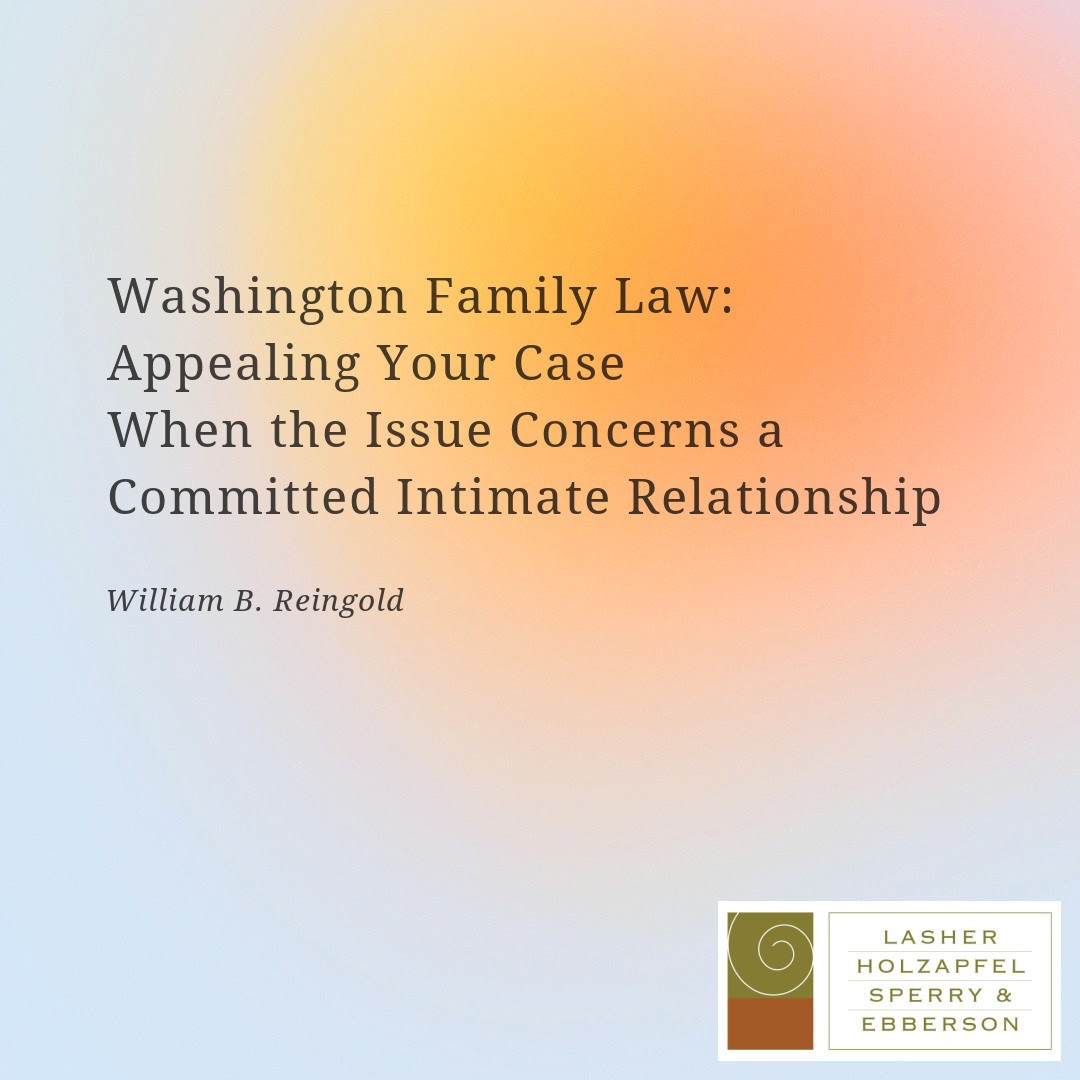News Author: Will Reingold
The Nuts and Bolts of Appeals: Preservation, Prejudice, and Presentation
Why Appeal at All? People appeal their case because they want a better outcome then what they received at trial. Maybe that means that the appealing party lost a jury verdict, or felt that they didn’t “win” enough at trial. Perhaps someone in a divorce trial receives 55% of the assets but no spousal support
Challenging Prenuptial Agreements in Washington State, at Trial and on Appeal
Most people are aware of the statistic that roughly 50% of marriages end in divorce; but did you know that only 5 – 10% of couples opt for a prenuptial agreement prior to marriage? So, what does a prenuptial agreement entail? Broadly, prenups are agreements between two individuals who plan to marry one another, the
Child Support Past High School Graduation? Postsecondary Educational Support in Washington
In many states, child support obligations do not extend past either the age of 18 or the child’s graduation from high school. In Washington, however, a parent can file a petition to continue child support after the child turns age 18 and while the child is enrolled in college or vocational school. This is known
Don’t Let Your Divorce Become Your Identity
Stress and anxiety are unfortunate byproducts of divorce. For some, every aspect of one’s life may be negatively impacted by divorce: productivity at your job may plummet; concern about finances might keep you up at night; social interactions may be more difficult as you try to stoically act as if everything is alright; and, if
What are the “Relocation Factors” in Washington Family Law?
In a prior blogpost, I discussed the statutory notice you have to give to another parent when you plan to relocate with a child. If the non-relocating parent objects to the move, then the parents will need to go to court and have a judge determine whether to allow the move. The governing statutory scheme
Basic Legalese for Family Law
Sua sponte • inter alia • sine qua non • in pari materia • ex parte • stare decisis • in limine • ejusdem generis • per curiam • ad litem • in loco parentis • pro se • de novo • sui generis • de jure • intestate • arguendo • ipso facto
A Timetable for Divorce in King County, Washington
Legal proceedings tend to take longer than people expect or desire. For people facing divorce, most want the matter finalized as quickly as possible. An oft-asked question is how long it will take to be officially divorced. This depends on several factors and following are some of the key factors. First, in King County, the
Parenting Evaluators and Quasi-Judicial Immunity
When custody arrangements are in dispute and the parties cannot agree on a parenting plan, the trial court may order that a “parenting evaluator” be assigned to the case. The evaluator acts as a neutral, third-party who provides a report to the court assessing the family and offering recommendations as to what is in the
Washington Divorce: What You Need to Know About Relocating with Children and Providing Notice to the Other Parent
The Washington State legislature defines a “Parenting Plan” as “a plan for parenting the child, including allocation of parenting functions, which plan is incorporated in any final decree or decree of modification in an action for dissolution of marriage or domestic partnership, declaration of invalidity, or legal separation.”[1] Setting forth various procedures and responsibilities the
Washington Family Law: Appealing Your Case When the Issue Concerns a Committed Intimate Relationship
I have previously blogged about Committed Intimate Relationships (“CIR”) and how courts handle them at the trial level, which you can read about here and here. In addition, CIR have also been reviewed by the Appellate and Supreme Court of Washington. Succinctly, the Supreme Court of Washington recognizes CIR as an equitable doctrine “because the

